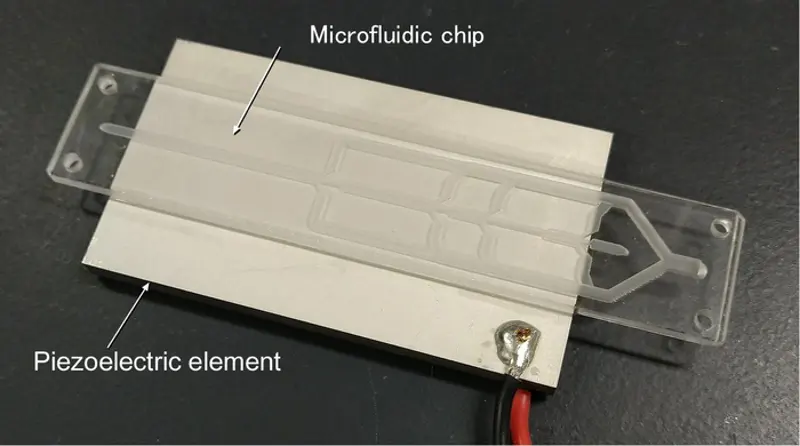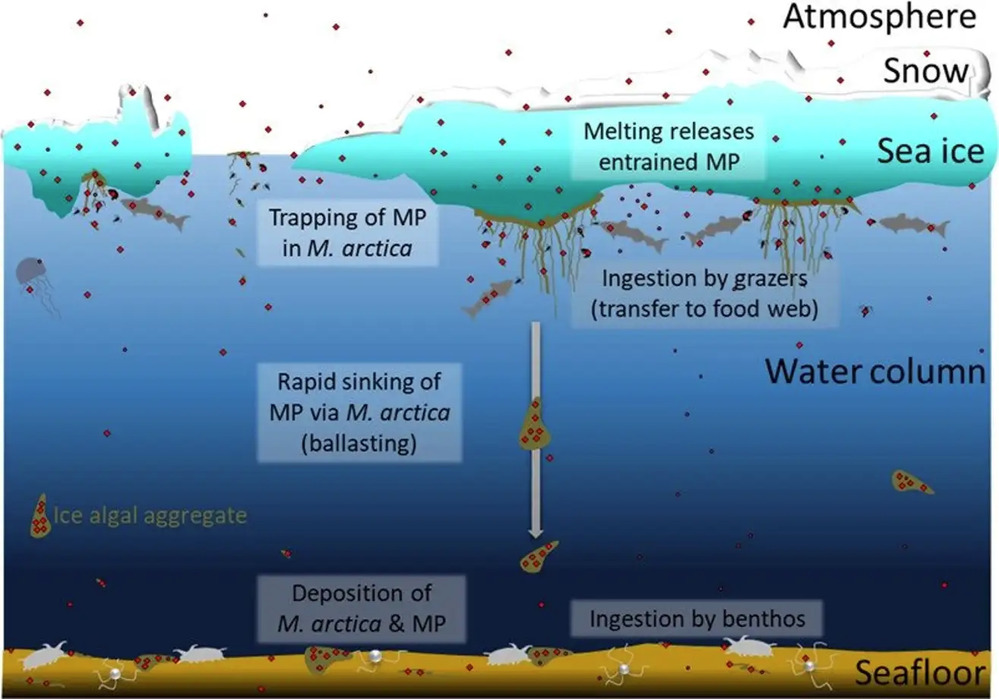An excellent start for some situations, but to scale it up to cover the globe might be asking a bit much.

Filtering microplastic out of water is a huge challenge for scientists
There’s no debate that microplastics present an ever-increasing ecological and health threat, with scientists just starting to understand the extent of these tiny particles and their impact on organisms, from marine life to humans. A 2019 study revealed that we’re even ingesting about 5 grams of microplastic, the weight of a credit card, each week.
The challenge now, however, is to find methods to successfully remove microplastics (MPs) from water and the atmosphere – no easy task when these tiny pieces of plastic measure just 1 micrometer to 5 millimeters in size.
A team of scientists out of Shinshu University has turned to sound to make it happen, experimenting with acoustic filtering to push MPs into a central channel, with branched sections filled by MP-free water that can be then released.
“Our proposed microfluidic device, which is designed based on a hydraulic-electric analogy, has three 1.5 mm-wide microchannels connected via four serial 0.7-mm-wide trifurcated junctions,” explained lead researcher Professor Yoshitake Akiyama of the Department of Mechanical Engineering and Robotics at the Faculty of Textile Science and Technology at Shinshu University. “The MPs are aligned at the center of the middle microchannel using a bulk acoustic wave of 500-kHz resonance frequency. As a result, a 3.2-fold enrichment of MPs must occur at each junction, resulting in a 105-fold overall enrichment in the device.”

The microfluidic device with filtering channels successfully cleared water of more than 90% of its microplastics on some tests Yoshitake Akiyama/Shinshu University
In other words, ultrasonic waves travel through the water and push the MPs to the center of a fluid stream, where they can then be collected, or filtered out, as MP-free water filters into the branches off the main central path of the device. Traditionally, MPs are collected by mesh filters, which can get clogged up easily and are limited in what they collect by the size of the mesh.
This device instead using microfluidic technology, an emerging science that manipulates the behavior of water with channels on a micro level. When conducting separate experiments on grouped MPs, the collection rate for those sized 10 μm, 15 μm , 25 μm, 50 μm and 200 μm was more than 90%. Further tests mixing up particle size (25–200 μm and 10-25 μm) saw a collection rate of around 80%.
It’s not the first acoustic filtering model the scientists have developed, having earlier produced a device made for and tested on laundry wastewater. The team believes the progress it’s made shows the device has further-reaching applications, such as filtering wastewater from industrial-scale production before it’s sent down the drain.
“This proposed microfluidic device based on acoustic focusing can efficiently, rapidly, and continuously collect 10–200 μm MPs without recirculation after pre-filtration of larger MPs through a mesh,” said Akiyama. “It can be installed in washing machines, factories, and other sources of MPs for efficiently enriching and removing various-sized MPs from laundry and industrial wastewater. This will make it possible to prevent the discharge of MPs to the environment.”
While there were issues with the device, such as some MPs slowing down and clogging the microchannel walls, the researchers believe tweaks in the pre-filtration process and the 2D focusing could iron this out.
The study was published in the journal Separation and Purification Technology.
Source: Shinshu University
https://newatlas.com/environment/ultrasound-remove-microplastics-water-microfluidic
